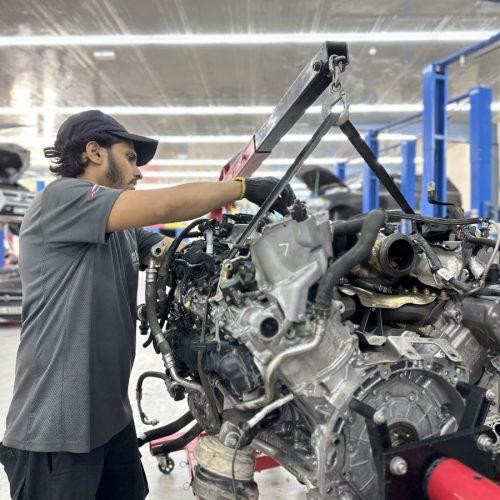Can an AI Novel Writer Replace Human Creativity

Artificial intelligence has become a revolutionary force across industries, from healthcare to finance. But in recent years, one area that has sparked intense debate is creative writing. With the rise of the AI novel writer, many wonder: can machines truly replicate the creativity, imagination, and emotional depth of human authors? Or will AI remain a tool that supports writers rather than replacing them? In this article, we’ll explore the role of AI in storytelling, its strengths and weaknesses, and whether it has the power to replace human creativity.
Understanding the AI Novel Writer
An AI novel writer is a type of artificial intelligence tool designed to generate long-form creative content. These systems are built on advanced machine learning models trained on vast datasets of literature, novels, articles, and stories. By analyzing patterns in language, structure, and storytelling techniques, AI can create new narratives that resemble human writing.
Key features of AI novel writers include:
Story generation: AI can produce plot outlines, dialogues, and even entire chapters.
Genre flexibility: From romance to science fiction, AI can adapt its style to match a chosen genre.
Language fluency: Advanced models generate text with proper grammar and flow.
Time efficiency: What might take a human weeks or months can be drafted by AI in minutes.
At first glance, these capabilities seem to challenge the uniqueness of human creativity. But is speed and imitation enough to rival the human imagination?
The Strengths of an AI Novel Writer
AI brings several advantages to the creative process, making it a valuable assistant for authors.
1. Idea Generation and Brainstorming
Writer’s block is one of the biggest hurdles for authors. An AI novel writer can instantly provide new ideas, character suggestions, or plot twists, helping writers overcome creative roadblocks.
2. Productivity Boost
AI can draft chapters quickly, allowing authors to produce more content in less time. For commercial writers or self-publishers, this can be a huge advantage.
3. Adaptability to Style and Genre
AI tools can mimic different writing tones and styles. Want a Gothic-inspired mystery or a fast-paced thriller? An AI novel writer can adapt accordingly.
4. Editing and Refinement
Many AI platforms offer grammar correction, readability improvement, and stylistic suggestions. This makes the editing process smoother and more efficient.
These strengths show that AI can support and accelerate the writing process—but do they truly amount to creativity?
The Limitations of an AI Novel Writer
While impressive, AI-generated stories often fall short in areas that matter most to readers.
1. Lack of True Imagination
AI doesn’t dream, feel, or experience the world. It generates content based on existing patterns in data. This means its “creativity” is limited to remixing what it has learned, not inventing something entirely new.
2. Shallow Emotional Depth
A human novelist can write from personal experiences—grief, love, joy, loss—and infuse genuine emotion into their work. AI can imitate emotional language but lacks the lived experience to make it authentic.
3. Predictable Storytelling
Because AI relies on patterns, its stories can sometimes feel formulaic or repetitive. Readers often crave surprise, but AI tends to follow common tropes.
4. Ethical Concerns
There are questions about originality and plagiarism, since AI models are trained on existing works. Can AI truly claim originality, or is it repackaging someone else’s creativity?
Human Creativity vs. Machine Efficiency
The debate over whether an AI novel writer can replace human creativity boils down to what we value in storytelling.
Efficiency vs. originality: AI can produce a lot of content quickly, but humans bring unique perspectives shaped by culture, memory, and experience.
Emotion vs. logic: Human writers connect with readers emotionally, while AI relies on logical predictions.
Imagination vs. imitation: Humans imagine worlds that don’t exist, while AI imitates patterns it has seen.
This contrast highlights that AI may be a strong partner but not a true replacement for human writers.
How Writers Can Use AI Novel Writers Effectively
Instead of fearing AI, authors can embrace it as a tool. Here’s how:
1. Use AI as a Brainstorming Partner
When stuck on plot ideas, AI can suggest dozens of possibilities. Writers can then refine and expand on the best ones.
2. Speed Up Drafting
AI can produce first drafts that authors later revise, saving time and energy.
3. Enhance Editing
AI tools can catch grammatical errors, suggest improvements, and refine tone.
4. Expand Perspectives
By generating alternative storylines or character arcs, AI can challenge writers to think outside the box.
In this way, the AI novel writer becomes a collaborator rather than a competitor.
The Future of AI in Creative Writing
The future will likely see AI becoming more sophisticated. As these tools evolve, they might simulate emotions better, generate richer plots, and even adapt more closely to a writer’s voice.
But no matter how advanced, AI will always lack one thing—human consciousness. Creativity is more than arranging words; it’s about interpreting life, expressing personal truths, and sharing perspectives that only a human can offer.
We may soon live in a world where bestselling novels are co-created by humans and AI, but the heart of storytelling will remain human.
Can an AI Novel Writer Replace Human Creativity?
The short answer: no—at least not entirely. An AI novel writer is a powerful tool that can support and enhance the writing process, but it cannot fully replicate the depth of human imagination, experience, and emotion.
What AI can do is democratize storytelling, giving aspiring authors access to tools that make writing easier and more efficient. Instead of replacing human creativity, AI pushes it forward, encouraging writers to think differently, work faster, and explore new possibilities.
Conclusion
The question of whether an AI novel writer can replace human creativity touches on the essence of what it means to be human. While AI can write words that look and sound like a story, it cannot replicate the lived experiences, emotions, and originality that human authors bring to their work.
Rather than viewing AI as a rival, writers should see it as an ally. By combining machine efficiency with human imagination, we can unlock a new era of storytelling—one where creativity thrives, not despite AI, but because of it.
So, can an AI novel writer replace human creativity? The answer lies in collaboration. AI may never replace the soul of storytelling, but it can help amplify the voice of every writer who dares to dream.







